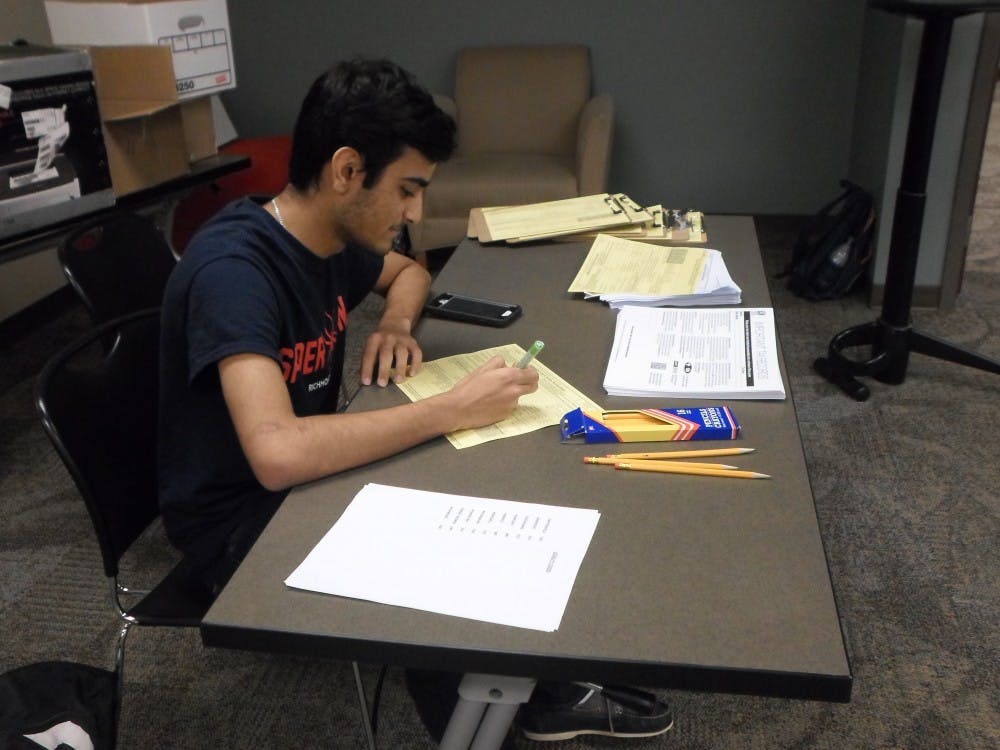Along with a few essays, a potential midterm and a final project, students at the University of Richmond are seeing more civic engagement opportunities on their syllabi.
Classes across all five of Richmond's schools are incorporating a civic engagement aspect into its curriculum, with locations varying from community gardens to juvenile detention centers.
Theresa Dolson, associate director of community-engaged learning, said she felt passionate about experiential learning and the impact it could have on academics.
“As a pedagogy, no matter the content, we know that students who have the opportunity to apply what they are learning about and thinking about in class learn better,” Dolson said. “It is a deeper learning experience.”
Dolson works with professors, faculty members and community members to create and organize these civic engagement opportunities and bring them to campus.
Dolson herself has taught a first-year seminar with community-based learning. The seminar, "Storytelling and Identity," incorporates a weekly opportunity to visit Bon Air Juvenile Correctional Center to exchange stories of a common subject, bridging the different life experiences students and correctional center residents have had.
"Federal Tax," a class in E. Claiborne Robins School of Business, has a formalized community engagement aspect. Volunteer Income Tax Assistance is a community program and part of the curriculum of the class during the spring semester. Students offer tax advice and complete income taxes for local citizens who earn $50,000 or less a year. The program is offered around Richmond, but UR students typically work at the UR Downtown location.
“It is a great public service out there," visiting professor Mary Scott said. "The Internal Revenue Service does the training. It is also a great opportunity for our students to learn."
Students who take "Tax" during the fall have been offered a few options to fill the volunteering portion of the curriculum. Scott has been working with the Bonner Center for Civic Engagement to find something that is comparable to the spring semester opportunity. Shalom Farms, Tricycle Gardens and the Feed More program are some of the proposed organizations for which students can volunteer their time.
“It was a truly rewarding experience, especially helping someone with evident results, ” said senior Brandon Kunick, who participated in the VITA program spring semester 2018. “Helping those local people getting their much-needed money back was very important.”
The students in "Federal Tax" are graded on their civic engagement work. Students are required to complete four to five hours of community work, then produce a three-to-four-page paper explaining what they did as part of their civic engagement, whom they worked with and what benefits they saw from doing it.
"Justice and Civil Society," a class offered in the Jepson School of Leadership Studies, is known for its civic engagement through a poverty simulation. Professor Thad Williamson offered his class the opportunity to visit Overby-Sheppard Elementary School to mentor students who come from low-income families so that his students could witness life outside of campus in a low-income area.
Enjoy what you're reading?
Signup for our newsletter
“Working with students at Overby-Sheppard was one of the most eye-opening experiences of my life,” senior Stephen Stavrou said. “The students I interacted with were incredible. Many of them have unimaginable obstacles to overcome outside of school yet are still able to show up every day smiling and ready to learn. They taught me more than I could have ever taught them.”
In 2017, over 120 courses offered on campus offered civic engagement components. The work of the CCE with faculty members aims to keep that number high, so that every student can have the opportunity to take community-based learning classes while at Richmond.
Contact lifestyle writer Louise Howorth at louise.howorth@richmond.edu.
Support independent student media
You can make a tax-deductible donation by clicking the button below, which takes you to our secure PayPal account. The page is set up to receive contributions in whatever amount you designate. We look forward to using the money we raise to further our mission of providing honest and accurate information to students, faculty, staff, alumni and others in the general public.
Donate Now



